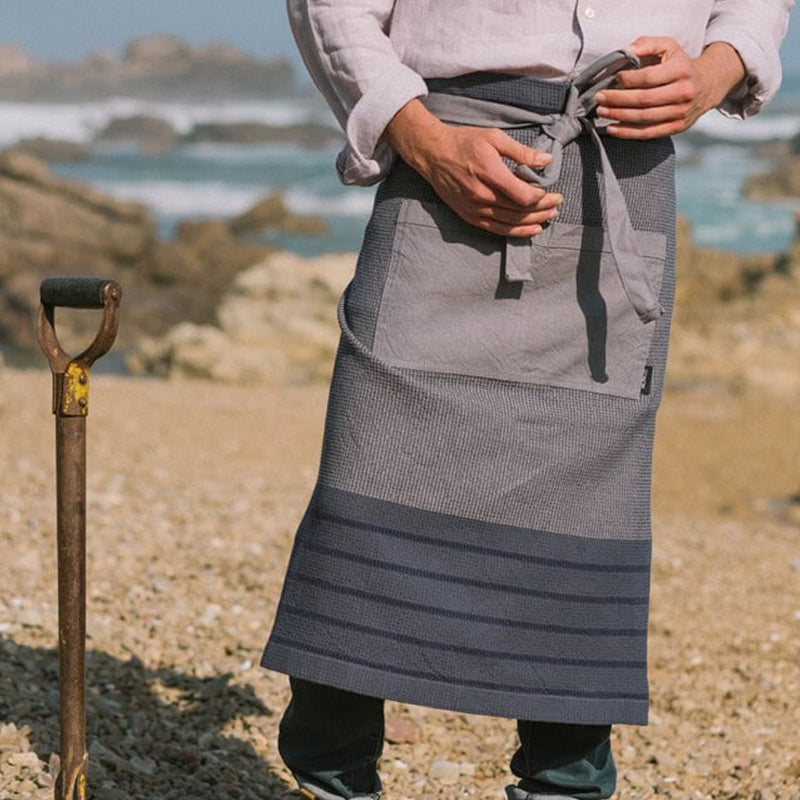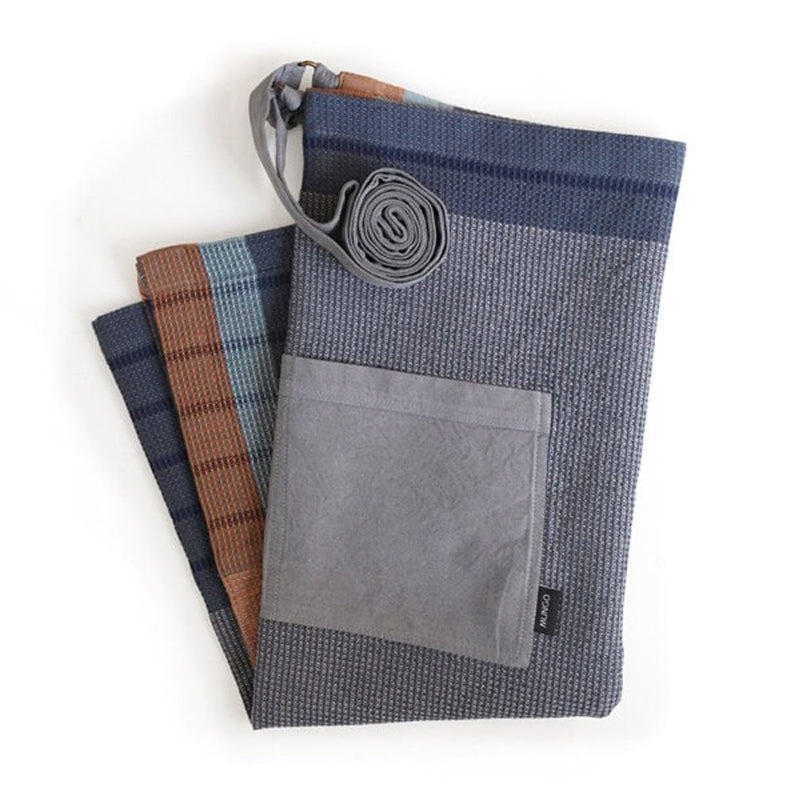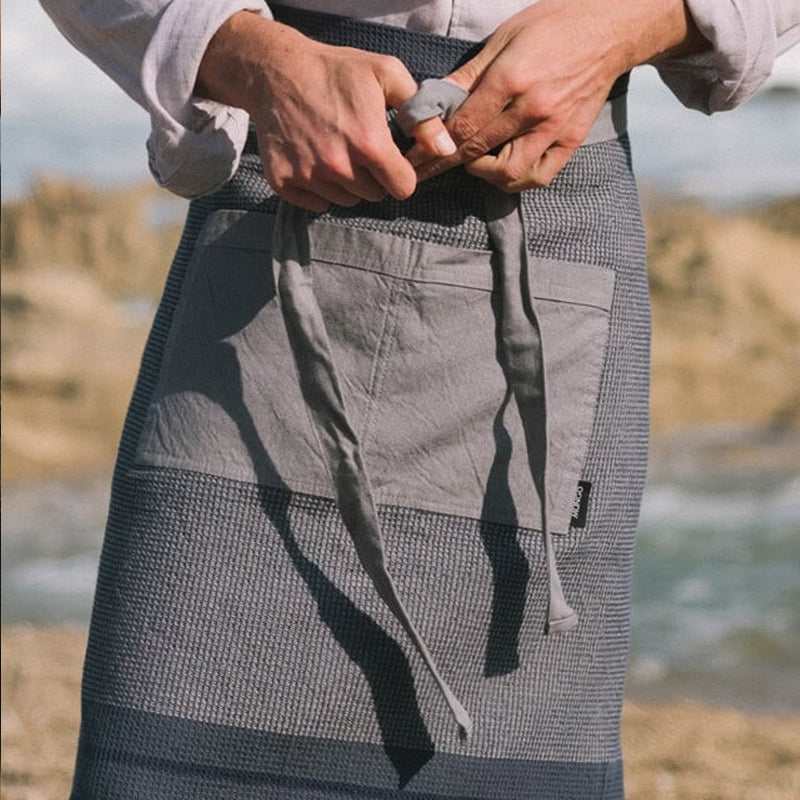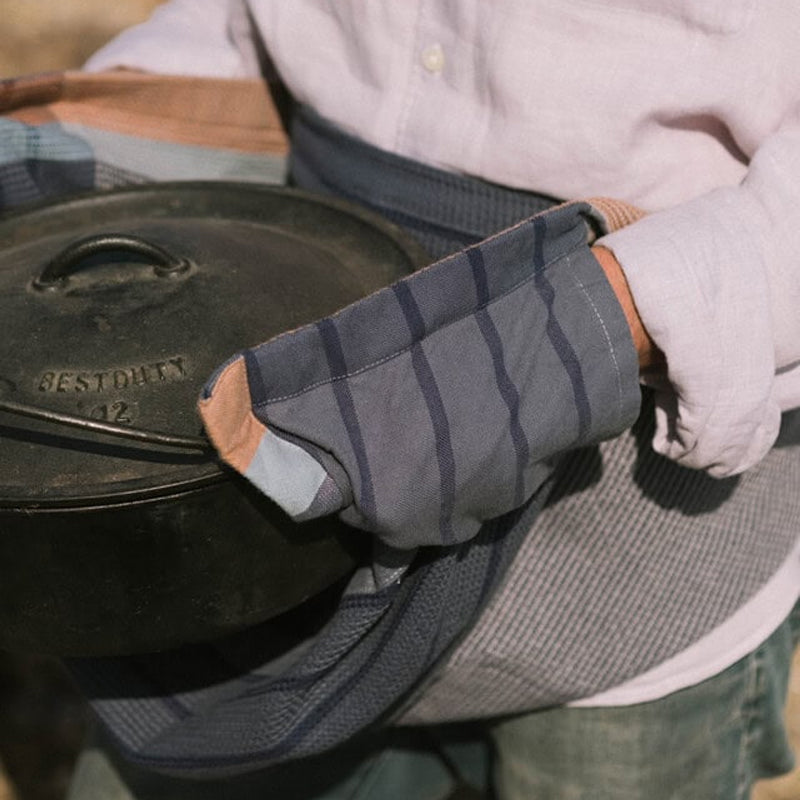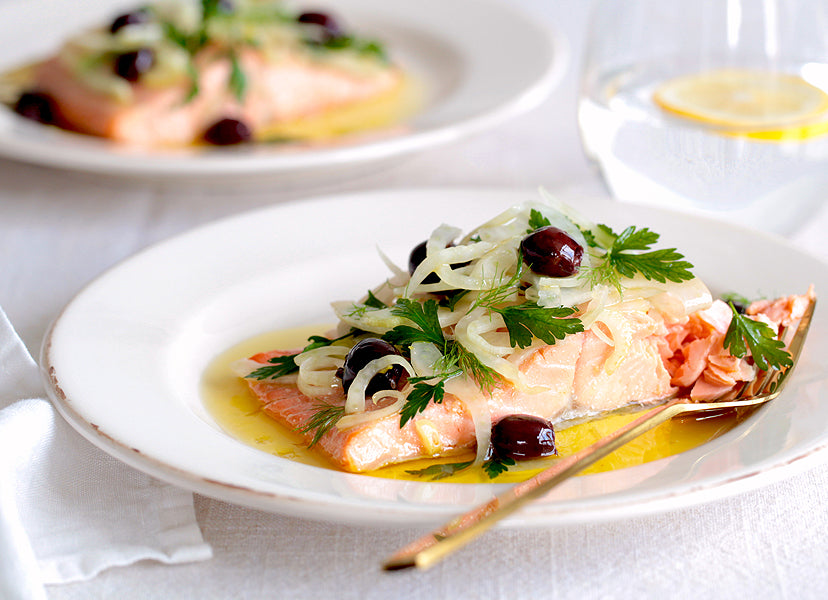Mungo The Grill Apron ~ Oyster
Mungo The Grill Apron ~ Oyster is backordered and will ship as soon as it is back in stock.
Description
Description
A most versatile cloth-meets-apron that will allow you to cook or barbeque with abandon!
The grill apron can not only be used to protect your clothing, but also to hold hot plates, protect hands from the flames, clean surfaces, wipe your fingers or keep food warm.
The grill apron is woven with 100% cotton in a durable, absorbent honeycomb weave using a dark colour palette to conceal stains. It features a sturdy ties for easy fastening that can be removed to transform the apron into a kitchen cloth, padded corners for handling hot plates or grills, deep front pockets and a handy hanging hook.
Apron measures 100cm x 72cm and each side tie is 95cm long.
Designed, woven and made in South Africa.
Producer
Producer
In 1998, Master Weaver Stuart Holding acquired two restored antique looms. He used these looms to weave limited runs of beautiful homeware textiles from what he called his ‘working weaving museum’, an old barn in Plettenberg Bay, South Africa, where passersby could watch him work and sold the textiles in his wife’s shop.
Soon demand outstripped supply and Mungo expanded production to a mill housed in an old dairy building a few kilometres away. Their one-man team has increased to a family of over 100, and although Mungo is growing, their foundational values remain the same – to produce beautifully designed homeware textiles, woven with care for the community and the environment.
In 2017 the Mungo team fulfilled a long-held dream; to build a new mill on the grounds of Old Nick Village, near Stuart’s original barn. The Mungo Mill is a testament to their philosophy of transparency in the production process, with the entire mill open to the public. And those two old looms? they are still going strong!
In 2020 Mungo became Global Organic Textile Standard (GOTS) certified. They are now South Africa’s first GOTS-certified textile weaving mill. Mungo defies the status quo and endeavours to help shape and uphold the standards of sustainable production in a non-industrial environment. They challenge the idea that value is a product of price and don’t compromise on production methods or the cost of raw materials when it comes to producing quality textiles that are constructed to stand the test of time.

